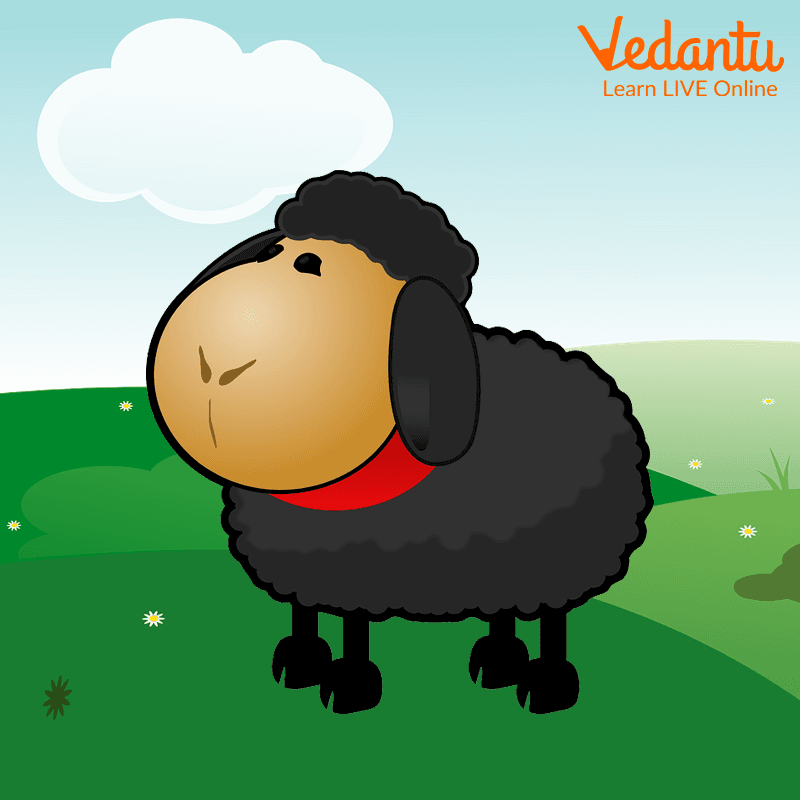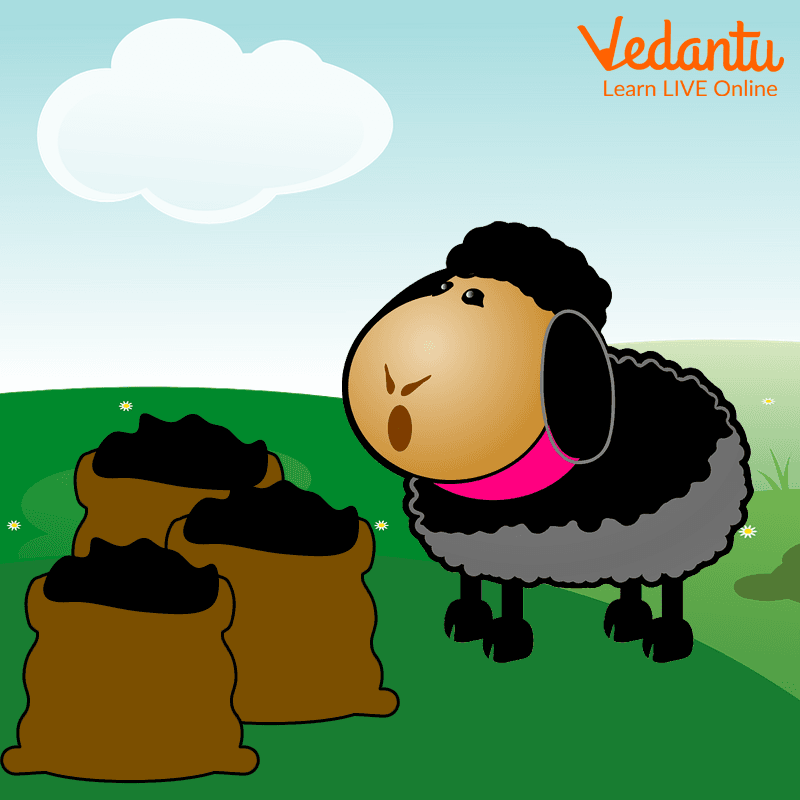Nursery rhymes are short and easy in terms of language and choice of words. These rhymes teach new words related to animals, objects, and other common objects. This rhyme is a popular one explaining what sheep give us.
It also explains sheep as a domestic farm animal and what we get from them.
Baa Baa Black Sheep Poem: An Introduction
The Baa Baa Black Sheep poem is an old classic nursery rhyme that kids love to memorise. Even the parents have studied the same rhyme and pass on the knowledge to their kids. This rhyme is about a man who asks a black sheep whether he has a bag of wool left or not. The sheep answers the man. What did the sheep tell the man? Let us find out.
Nursery Rhymes for Counting
Some nursery rhymes are composed to teach simple counting methods to the kids. Interesting characters are designed and included in these rhymes to make them more interesting. One of the best examples is Baa Baa Black Sheep.
In this rhyme, kids learn to count up to 3. The sheep in the rhyme explains the number of bags of wool he has left. Kids can easily learn numbers and how to count by studying and memorising these rhymes.
Baa Baa Black Sheep Nursery Rhyme Lyrics
Baa, baa, black sheep
Have you any wool?
Yes sir, yes sir, three bags full.
One for the master,
And one for the dame,
And one for the little boy
Who lives down the lane.

Baa Baa Black Sheep
Meaning of the Lyrics of Baa Baa Black Sheep
The first line depicts a man asking the sheep whether he has any wool. The sheep answers that he has three bags of wool left. When the man asks for whom these bags of wool are, the sheep answers them sequentially.
He says one is for the master who rears him. One is for a middle-aged woman and the last one is for the boy who lives down the lane. It means that the sheep do not have any wool left for the man. The sheep has only three bags and all are booked.
Significance of This Poem
If we study the lines of this poem, we can understand what Baa Baa Black Sheep is about. This is a nursery rhyme that teaches kids how to count. The nursery kids will just start to learn to identify and write numbers. By teaching this rhyme at an early age, the kids will get accustomed to counting up to 3.
This rhyme also introduces new words related to animals and people. The kids will learn what a dame means. They will also learn what a lane is and where the small boy lives. This poem will also explain sheep are domesticated by humans for particular reasons. The man who owns a sheep is called the master. He rears sheep to harvest wool. Sheep produce wool as fur.

The Black Sheep and its Wool
Tips for Parents
Read this rhyme to the kids and explain the lines. Make them understand the meaning and ask fundamental questions. Show pictures of a sheep and explain how it makes wool. Describe how we use wool to make woollen garments for the winter season.


FAQs on Baa Baa Black Sheep: A Nursery Rhyme
1. What is the name of the sheep?
The name of the sheep is Baa Baa Black Sheep. It is black in colour and makes black wool for his master.
2. How many bags of wool did Baa Baa Black Sheep have?
Baa Baa Black Sheep had three bags of wool left. These bags were for its master, a woman, and a small boy who lived nearby.
3. What do we learn from this poem?
This poem teaches us to count up to 3. It also teaches us how sheep make wool and we use wool to make winter clothes. It also explains how a sheep is reared by a master for wool.
Nursery rhymes are short and easy in terms of language and choice of words. These rhymes teach new words related to animals, objects, and other common objects. This rhyme is a popular one explaining what sheep give us.
It also explains sheep as a domestic farm animal and what we get from them.





